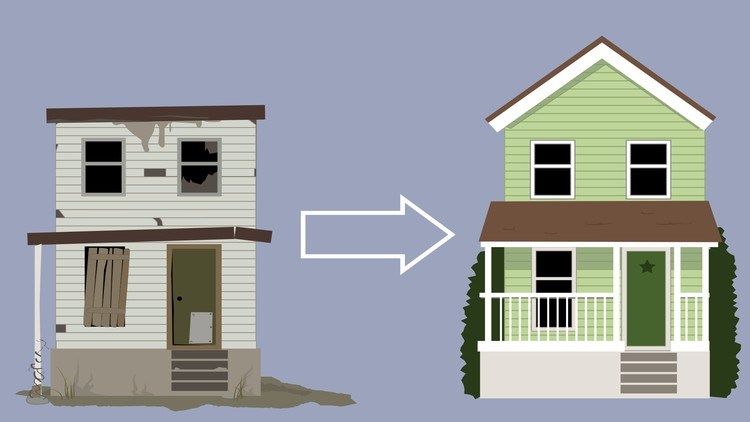Flipping properties is a great way to get started investing in real estate. Here are seven things to do when you are flipping a property (Disclaimer: This article is not written by an attorney or solicitor and is not represented to be legal advice, and in no way should be considered as legal advice. Consult an attorney or solicitor for legal advice.)
Get an independent appraisal. Make sure that the property is worth the price you have negotiated with the owner. An independent appraiser can put a pretty accurate value on the property for a relatively small investment. He or she will evaluate the condition of the property, along with comparing it to similar properties in the area that have recently been sold. Although you could do this yourself, it really is worth it to have someone with experience valuing properties. That way you’ll get a realistic valuation for a discounted price if you plan to flip the property to a rehab expert, or for the full retail price if you plan to rehab the property yourself.
Have the property inspected for defects. Contact a reputable company that performs property inspections. An inspector is different from an appraiser in that he or she will focus on the physical condition of the property and may uncover defects that an appraiser may not. Again, this is a small investment for the knowledge needed to make an offer on which you can make money after fixing it up.
Get an assignable purchase agreement. If you’re planning to flip the property to a buyer who will be renovating the property, you don’t actually own the property. You will be selling your interest in the purchase agreement or contract to buy the property. For this you need to be able to assign your interest in the purchase agreement to your end buyer. Consult and attorney or solicitor for advice.
Make a realistic down payment. Don’t insult the seller by offering a token down payment. Offer several percentage points of the purchase price as evidence of your good faith. That way, the seller will know that you’re a serious buyer.
Give yourself enough time to find an end buyer. Set the closing date 30 to 60 days in the future. That way, you’ll have enough time to find a cash buyer for your interest in the contract. Nothing will sully your reputation faster than stiffing a seller and being unable to close on the scheduled day because you don’t have the money to purchase the property, or have found someone who does, who has also purchased your interest in the purchase agreement.
Do not represent yourself as the owner. When you are looking for a cash buyer for whom to flip the property to, never represent yourself as the owner of the property. You are only the purchaser and as such, can only offer for sale your interest in the purchase agreement. You’ll definitely need to consult with an attorney or solicitor to find out exactly what you can and cannot say, do and represent as you are looking for someone willing to purchase the property and renovate it.
Consult an attorney or solicitor. Cannot emphasize enough the importance of getting expert legal advice from a qualified attorney or solicitor. That way, you will know what you can and cannot say, what you can promise or what you can offer to potential buyers. The attorney or solicitor can also help you by drafting contracts or recommending pre-written ones. These pre-written contractors, or boilerplates, are available online or at some office supply stores. They may also be available at your local public library.
BONUS: Talk to a lawyer or solicitor who is licensed to practice in your legal jurisdiction. Flipping properties is a great way to start investing in real estate, especially if you do not have a large amount of money to invest. However, you must abide by your local laws governing real estate transactions. If you are found to be in violation of the law, you could face stiff penalties. These fines can add up quickly; some jurisdiction levy a fine for every transaction you have been involved in if they find that you are in violation of the laws governing the selling and marketing of real estate.
Eric Reyes is a passionate thought leader having been featured in 50 distinguished online and offline platforms. His passion and knowledge in Finance and Business made him a sought after contributor providing valuable insights to his readers. You can find him reading a book and discussing current events in his spare time.




